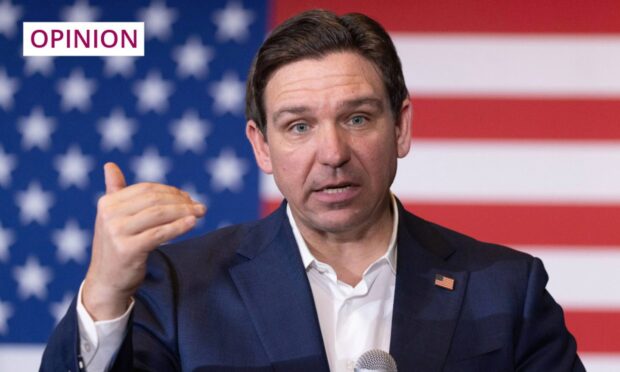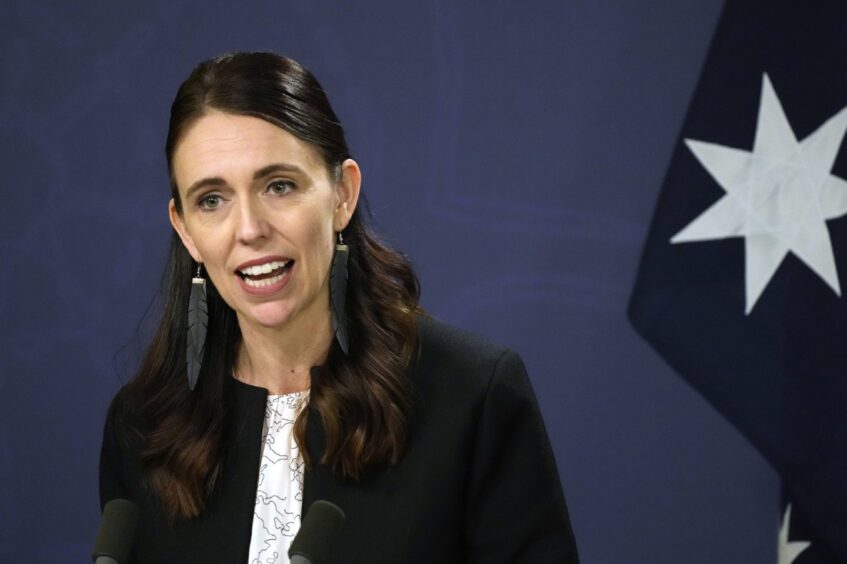Ron DeSantis signing off his bid to be US President with a misattributed Churchill quote had me reaching for my Dictionary of Political Quotations.
DeSantis, the book-banning Governor of Florida, quit the race for the White House via a series of social media posts stating, “Success is not final, failure is not fatal: it is the courage to continue that counts” and claiming that these were Winston Churchill’s words.
It was in keeping with the rest of DeSantis’ campaign – ill-conceived and stupid.
Ill-conceived, in that he was not actually continuing, and therefore seemed to be owning up to a lack of courage to take on Donald Trump – a man widely regarded as the greatest threat to US democracy since Richard Nixon or Nikita Krushchev.
And stupid because the quote is not Churchill’s. It seems to belong to a Budweiser beer advertising campaign.
But the episode speaks to a number of concerning trends in politics more widely.
Firstly, laziness and lack of care. Too many politicians are commentators and willing to trade insight for immediacy.
See also the hoo-ha last week about Rishi Sunak apparently snubbing a voter on a hospital walkabout who wanted to talk about her daughter’s care.
Sky’s clip of the PM turning his back went viral but the full video showed a model of polite and patient engagement.
But De Santis’s blunder also highlights a lack of interesting oratory.
The advent of social media has knocked over any tradition for inspiring words that convey complex thoughts in favour of politicians that speak in slogans that belong on those little boards sold in knick-knack shops.
‘Don’t grow up; it’s a trap’
‘You can’t make everyone happy, you’re not pizza’
‘For the many not the few’
That sort of thing.
More people will vote in 2024 – in elections in the UK, US, India and Indonesia among others – than in any year in history. One might hope for some soaring oratory.
But one would be foolish to expect any.
One should look to Australasia for inspirational politician speeches
For recent examples of exceptional speeches, one has to look to Australasia.
Jacinda Ardern rose to the moment following the Christchurch terror attack and inspired unity with her call for New Zealanders “To be the nation we believe ourselves to be”.
And Julia Gillard’s misogyny speech in the Australian parliament continues to inspire activists and TikTok tributes in equal measure to this day.
The fact both examples were delivered by women may not be a coincidence. But it’s certainly not the case that women have a monopoly on wit, pith and insight delivered with relevant flair or gravitas.
Proof lies in the Oxford Dictionary of Political Quotations. I received it decades ago ahead of interviewing its compiler Antony Jay.
His CV speaks to a different era – at the same time as he was writing hit sitcoms Yes, Minister and Yes, Prime Minister he was advising Chancellors like Nigel Lawson and John Major on delivering their Budget broadcasts.
(Imagine how Jeremy Hunt or Rachel Reeves’ profile would be improved by bringing someone like Jesse Armstrong – writer on The Thick of It and Succession – on to their team.)
Flick to any random page of his Dictionary of Political Quotations and it’s hard not to emerge hours later entertained and enlightened. These are not flighty soundbites, these are words to echo down the ages.
One page features both Roman historian Livy and First World War Prime Minister David Lloyd George.
The former apparently coined “Down with the defeated!” while the latter noted in 1933, “The world is becoming like a lunatic asylum run by lunatics”.
Both speak to the state of US politics.
The page falls open at the entry for Al Capone and his instruction, “Don’t get the idea I’m knocking the American system.” Even that feels apposite.
While Donald Trump rails against US institutions, that nation’s greatest gangster defended them. (Which begs the question who actually is the bigger gangster?)
That lack of useful oratory extends to our politics too of course. Who remembers last year’s conference speeches by Rishi Sunak or Keir Starmer, let alone those they have delivered this month in an effort to define the year ahead?
And it is speeches, not soundbites that are required to address the challenges the nation faces, which are multifarious and complex.
How would a Labour government reset EU relations
How would a Labour government reset relations with the EU?
What is the case for Tory tax cuts in the March budget? Which Lib Dem priorities will not be traded in any coalition negotiations that may follow the general election? These topics demand clarity but provide opportunities for vision and inspiration.
Search for quotes about ‘speeches’ in the Dictionary of Political Quotations and a Michael Foot line about postwar Labour foreign secretary Ernest Bevin perhaps best fits the bill.
He says Bevin’s oratory left “eyes, ears and emotions riveted”.
Let the current crop of politicians aim for something similar, and let the bumper set of elections taking place this year yield a bountiful crop of entries for the next edition of the Dictionary of Political Quotations.
James Millar is a political commentator, author and a former Westminster correspondent for The Sunday Post


Conversation